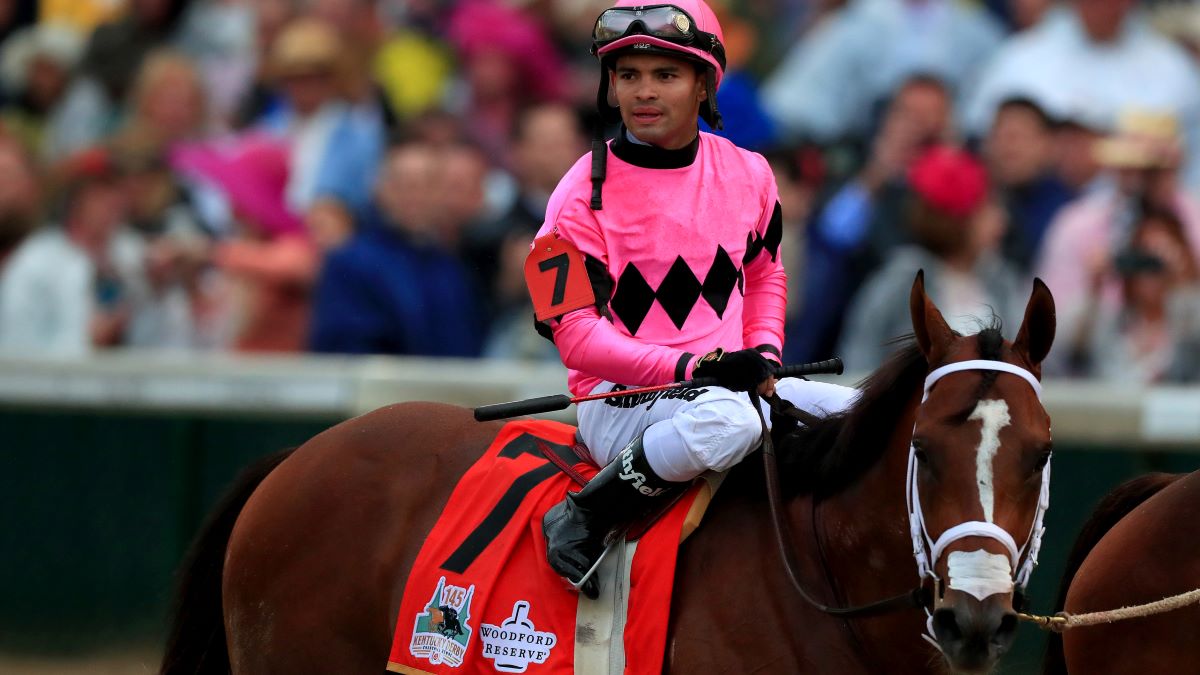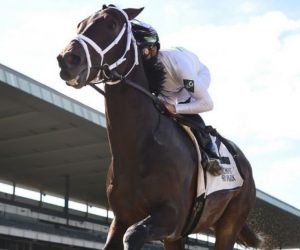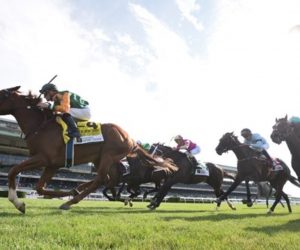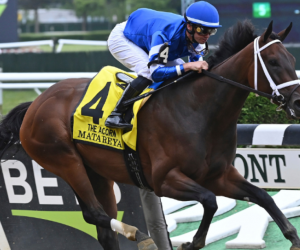On the cusp of the 2020 Kentucky Derby, the US Court of Appeals for the Sixth Circuit upheld a lower court decision validating Maximum Security’s disqualification in the 2019 Derby.

In a unanimous 14-page decision handed down Friday, the three-judge appeals court upheld a November 2019 decision by a lower court dismissing a lawsuit filed by Maximum Security’s owners, Gary and Mary West. With that decision, the Wests’ only avenue of pursuing this further would be the US Supreme Court. But Gary West told VSiN’s Ron Flatter he wouldn’t take that avenue.
What this does, aside from putting the 2019 Kentucky Derby finally to bed, is affirm stewards’ rights to decide issues like interference in races. This was the initial ruling handed down last November by US District Court Judge Karen Caldwell. She ruled that disqualification rules for races are not open for judicial review and that the Wests’ Fourteenth Amendment right to due process wasn’t violated when Maximum Security was taken down.
Friday’s appellate court ruling affirms that decision, along with the finality of stewards’ calls pertaining to the running of races. That includes upholding Maximum Security’s disqualification.
No Appealing Over the Stewards’ Heads
“What should have been the fastest two minutes in sports turned into over a year of litigation,†the appellate court wrote. “Neither Kentucky law nor the Fourteenth Amendment allows for judicial second-guessing of the stewards’ call. For the foregoing reasons, we affirm the judgment of the district court in full.â€
With a nice turn of phrase, the court made a point to illustrate stewards have “unbridled discretion in determining whether a racing foul occurred, and whether to disqualify a horse for a foul committed during the race.â€
Last May, the Wests filed suit against the Kentucky Horse Racing Commission, its members and staff and the three stewards who determined Maximum Security and jockey Luis Saez interfered with War of Will at the top of the stretch of last year’s Derby.
Maximum Security crossed the finish line first. But after an inquiry and now-infamous 22-minute delay, the stewards disqualified Maximum Security. They dropped him to 17th and vaulted erstwhile 65/1 runner-up Country House to first.
Court Takes All the Wests’ Arguments Off the Board
The Wests maintained they were deprived of “protected liberty and property interests†when Maximum Security was disqualified. They also claimed the stewards’ decision was subject to Kentucky law because it was “the final order of an agency. Therefore, it’s open to judicial review.
The appellate court swatted the first argument aside, writing the Wests never took possession of the winning purse and that owning and racing horses “is a privilege and not a personal right.†They dismissed the second argument, ruling the head of an agency did not make the DQ decision. That distinction is legally necessary to meet the statutory definition of a “final order.â€
“Even though Maximum Security’s disqualification was unprecedented, the fact remains that the stewards have always had the discretion to call fouls in horse races; this just happens to be the first time that they exercised this discretion in the Kentucky Derby,†the court wrote. “The law is clear that a party cannot have a property interested in a discretionary benefit, even if that discretion had never been exercised previously.â€











